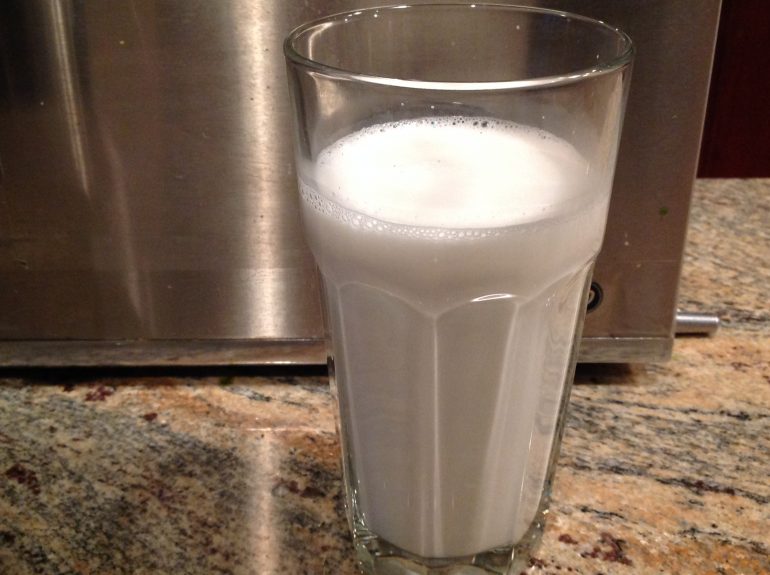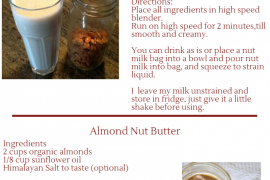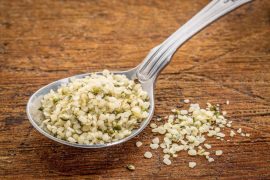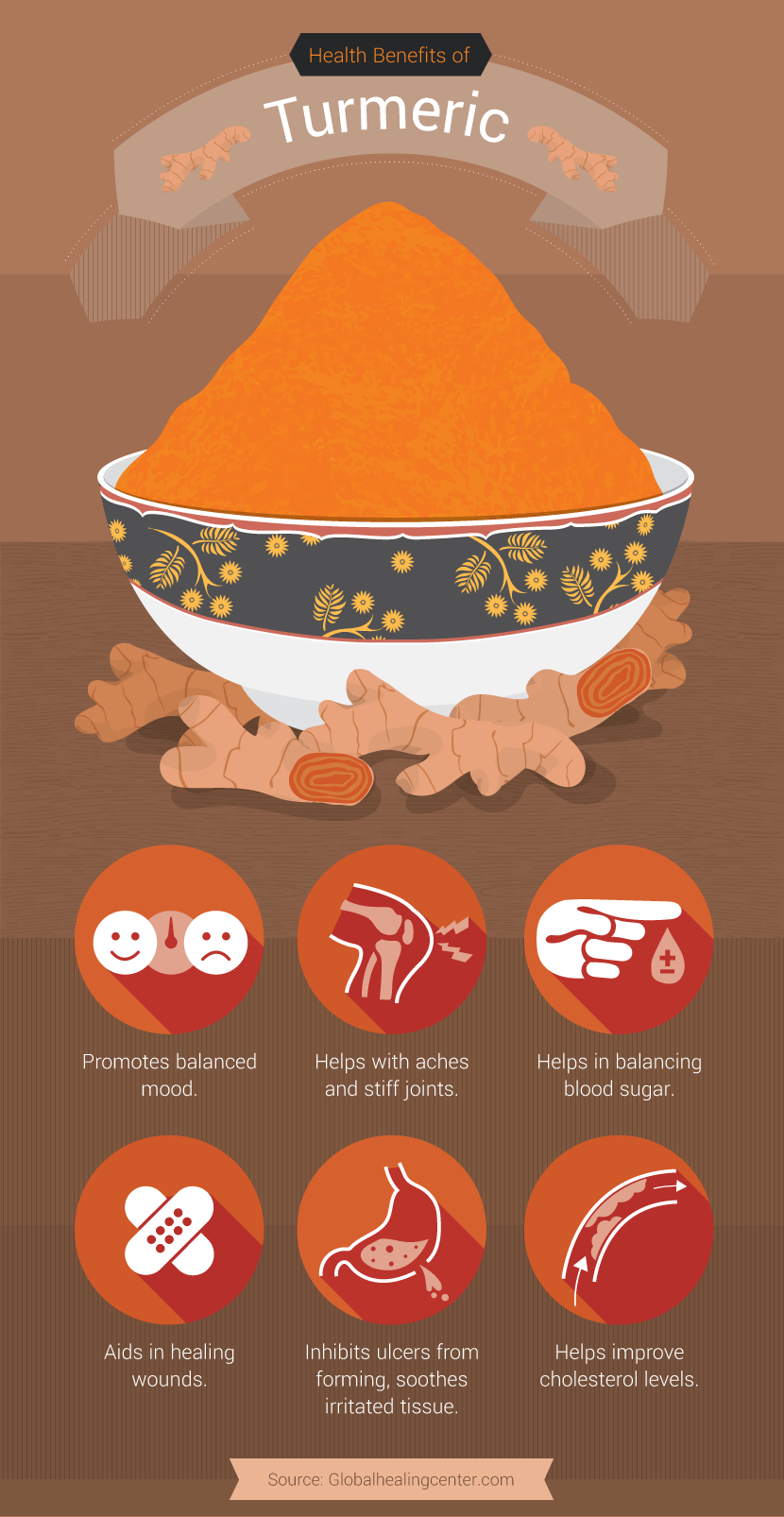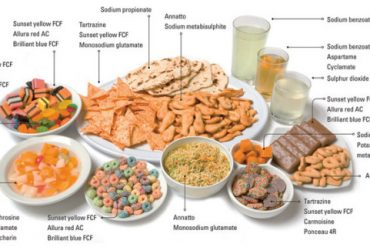This dairy free coconut milk is one of my favorite recipes. Its ready in minutes, requires only two ingredients and is versatile enough to use in smoothies, desserts, on granola or cereals and anywhere that you would traditionally use milk. I love non dairy milks and they are quite popular, which isn’t so surprising since 75% of the world’s population is lactose intolerant. (a ) There is just about every kind of non dairy milk available in the marketplace, cashew, almond, soy, coconut, oat and macadamia to name a few. Many people who are dairy intolerant are grateful to have so many options available to them.
13 Reasons to avoid milk
According to Dr. Mark Hyman the majority of adults stop producing lactase sometime between the age of two and five. (2) Which may explain why many adults have a difficult time digesting dairy products. Lactase is an enzyme that the body needs to metabolize lactose. That in itself is the reason many people give up dairy, they simply don’t feel well when it’s consumed. Here are a few other reasons to reconsider dairy consumption.
Acne-Dairy consumption has minor link to increased acne. (3)
Allergen-Milk is the most self-reported food allergen. (4)
Bone fractures-Bone fractures are actually higher in countries that consume the most dairy and animal protein. (5) According to a study from BMJ, “Michaëlsson and colleagues suggest that milk is harmful because a metabolite of lactose, D-galactose, which mimics aging through inflammation and oxidative stress in animal models. (6)
Constipation-Children with constant constipation may simply have a milk allergy. (7)
Children’s illnesses-An allergy to cow’s milk in children “Should be considered in children with symptoms such as wheezing, rhinitis, dry cough, vomiting, laryngeal edema, acute asthma with severe respiratory distress, anaphylaxis. Late reactions due to cow’s milk allergy are atopic dermatitis, chronic diarrhea, blood in the stools, iron deficiency anemia, gastroesophageal reflux disease, constipation, chronic vomiting, colic, poor growth”. (8)
Diabetes-Cow’s milk protein may play a role in triggering type 1 diabetes through a process called molecular mimicry. (9)
Ear infections-Chronic ear infections are frequently linked to dairy allergies. (10)
Heiner’s syndrome-This respiratory disease in infants is primarily caused by consuming milk. (11)
Increased cholesterol-Milk fat contains a broad range of fatty acids and some have a negative impact on the cholesterol rich lipoproteins. While it is important to note that this is dependent of frequency and quantity of consumption. (12)
Inflammatory– D galactose in milk is inflammatory and increases sign of aging. Individuals with cow milk allergies also rate high on inflammatory scores. (13) Studies have connected full-fat dairy with disrupting our gut microbiome, actually decreasing levels of good gut bacteria which are key in reducing inflammation. (14)
Multiple Sclerosis-Countries that consume higher amounts of dairy, also have rates of MS. (15)
Nasal Polyps –An allergy to cow’s milk may be a contributing factor in chronic nasal polyps. (16)
Ovarian & prostate cancer risk-Evidence shows that consuming milk or dairy products may contribute to the risk of prostate and ovarian cancers. (17)
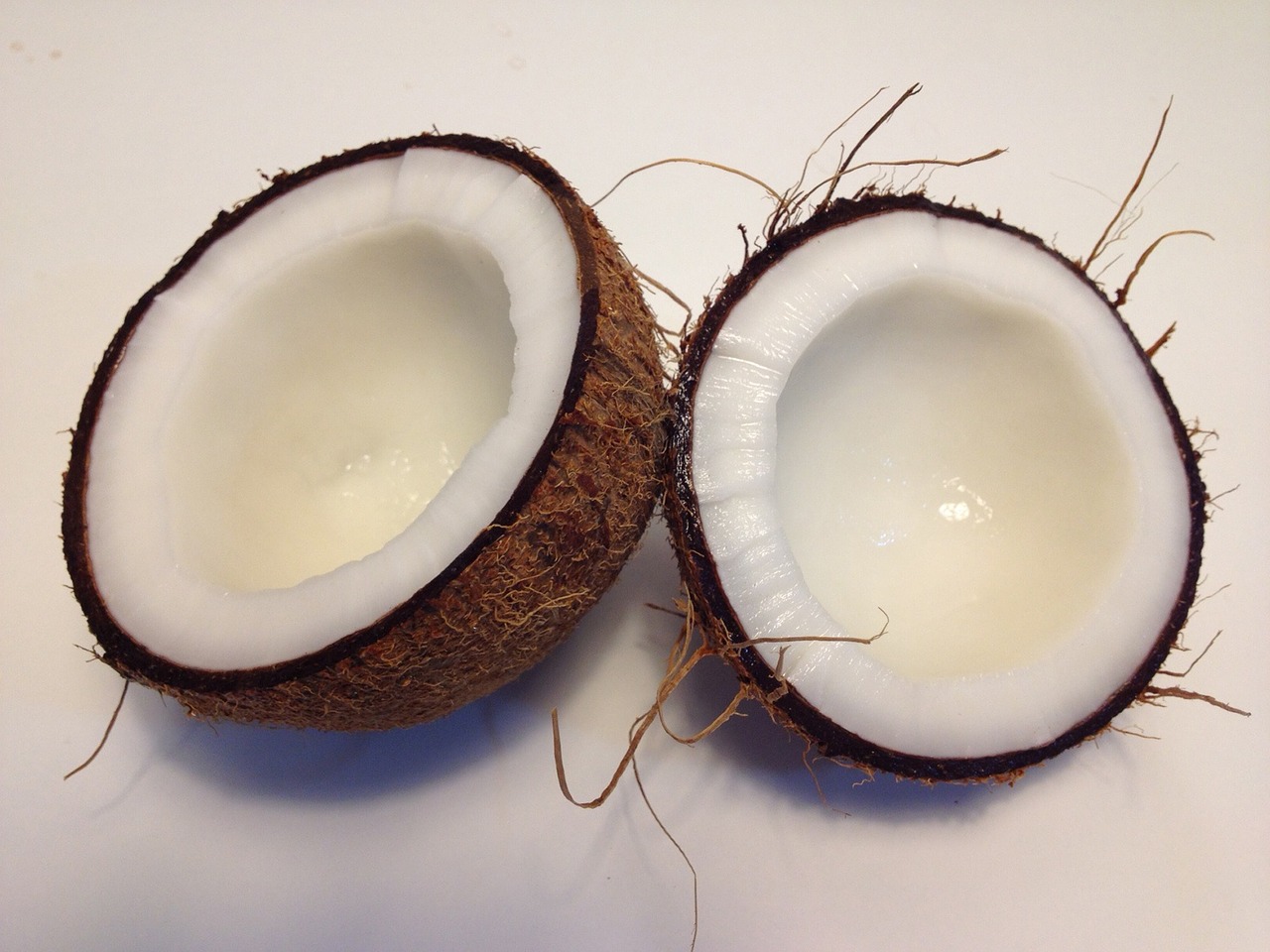
13 health benefits of coconut
Dental care-Coconut oil is a great option for oil pulling , and is helpful maintaining and improving oral health, as well as reducing plaque induced gingivitis, and reducing bad breath . Coconut oil helps the body to absorb calcium more efficiently. Calcium is an important mineral in helping to develop strong and healthy teeth.
Diabetes– Coconut helps in improving the secretion of insulin and in controlling blood sugar levels.
Healthy bones-Coconut oil helps the body to absorb minerals more efficiently
Skin care–Coconut oil is a wonderful moisturizer and a great option for massage. With its antioxidant properties it can help in preventing premature skin aging. Coconut oil also has antibacterial properties making it a wonderful option for skin conditions such as dermatitis, eczema, psoriasis and other skin conditions.
Hair care-Since coconut oil has such amazing moisturizing properties it’s great for dandruff (MHM article on dandruff) as well as a great conditioner for damaged hair.
Heart health-Coconut oil is 50% lauric acid which is beneficial in preventing numerous heart conditions caused by high blood pressure and high cholesterol levels.
Brain health—Dr. Mary Newport has had amazing results in treating her husband, who suffered with Alzheimer’s . This 2006 study showed immediate improvement in brain function of patients with mild Alzheimer’s disease.
Immune system health-Coconut oil has antibacterial, antifungal and antiviral properties. It also contains antimicrobial lipids, caprylic acid and lauric acid which also help to strengthen the immune system.
Digestive health– The anti-microbial properties of coconut oil can help with fighting off parasites, bacteria and fungi that can contribute to indigestion.
Candida-Caprylic acid in coconut oil help to eliminate candida albicans.
Virus fighter-According to the Coconut Research Center, coconut kills viruses that cause influenza, herpes, measles, hepatitis C, SARS and other illnesses.
Bacteria fighter– According to the Coconut Research Center, coconut kills bacteria that causes ulcers, throat infections, UTI infections, gum disease and cavities, pneumonia and other diseases.
Weight loss–The medium chain fatty acids in coconut oil increase the amount of calories you burn compared to other fats.
Coconut milk is a great non dairy option
You can easily find coconut milk in grocery stores and online. The downside of commercially made milks is you’re also likely to find unnecessary additives and a higher price point. Making your own coconut milk literally takes a few minutes and the ingredients are easy….organic dried coconut and water. The advantage to making your own coconut milk are a fresher product, no unnecessary additives or flavors, and a lower price point. The expense is simply the cost for one cup of shredded coconut.
So let’s get started!
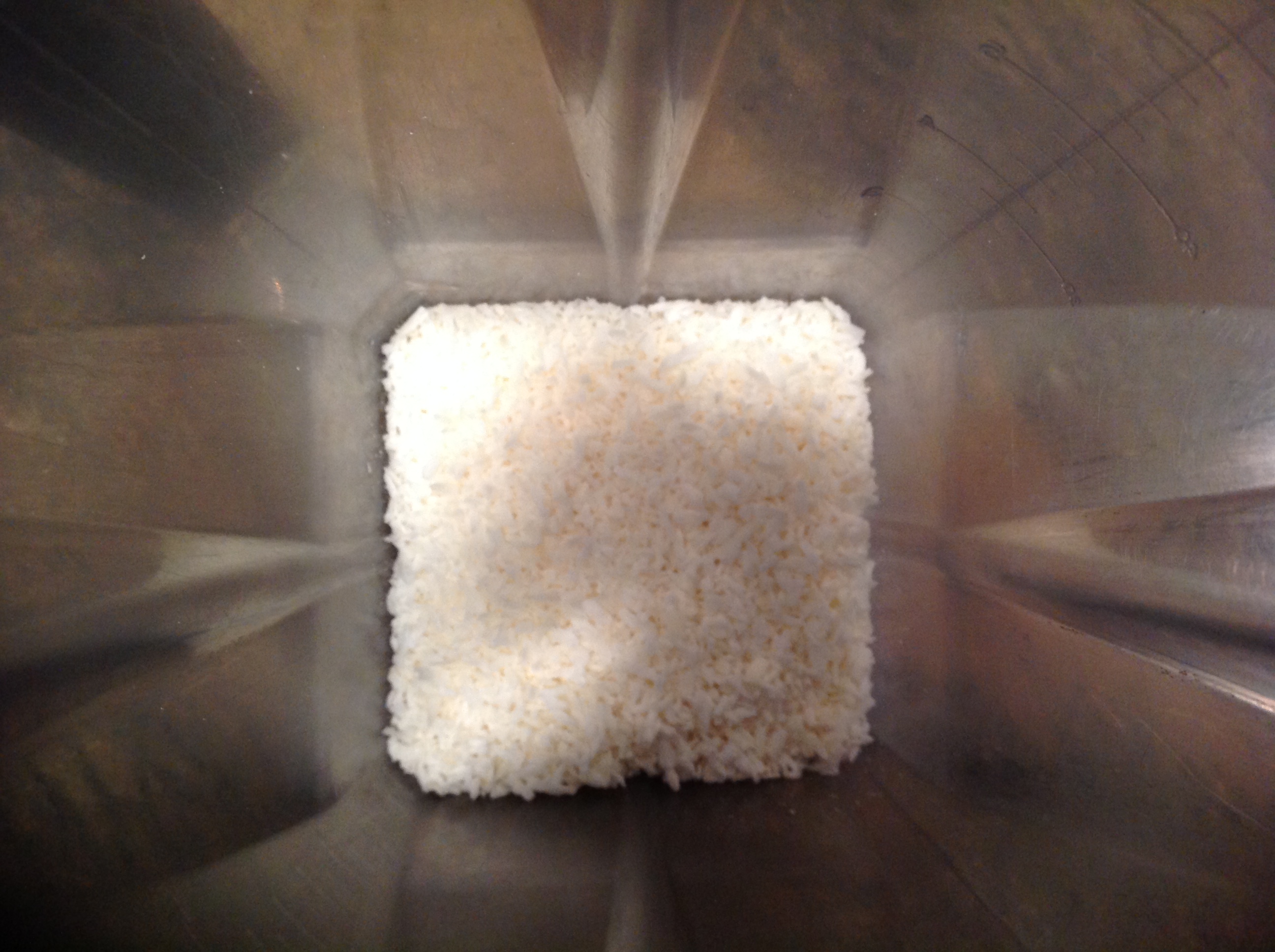 1. Add one cup of organic dried coconut to a vitamix or high speed blender.
1. Add one cup of organic dried coconut to a vitamix or high speed blender.
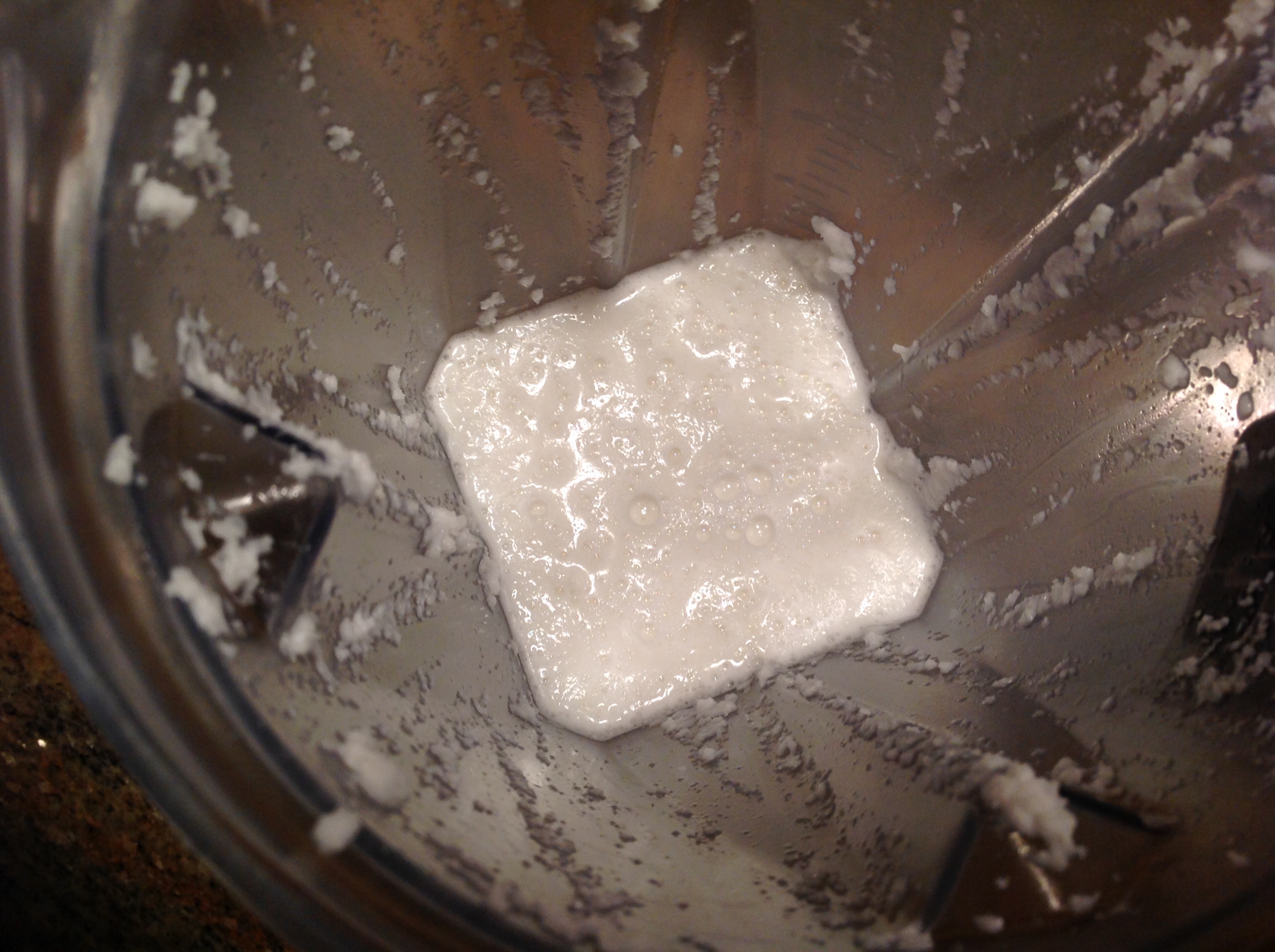
2. Add 1-1/2 cups of hot water to coconut and blend on high speed for one minute.
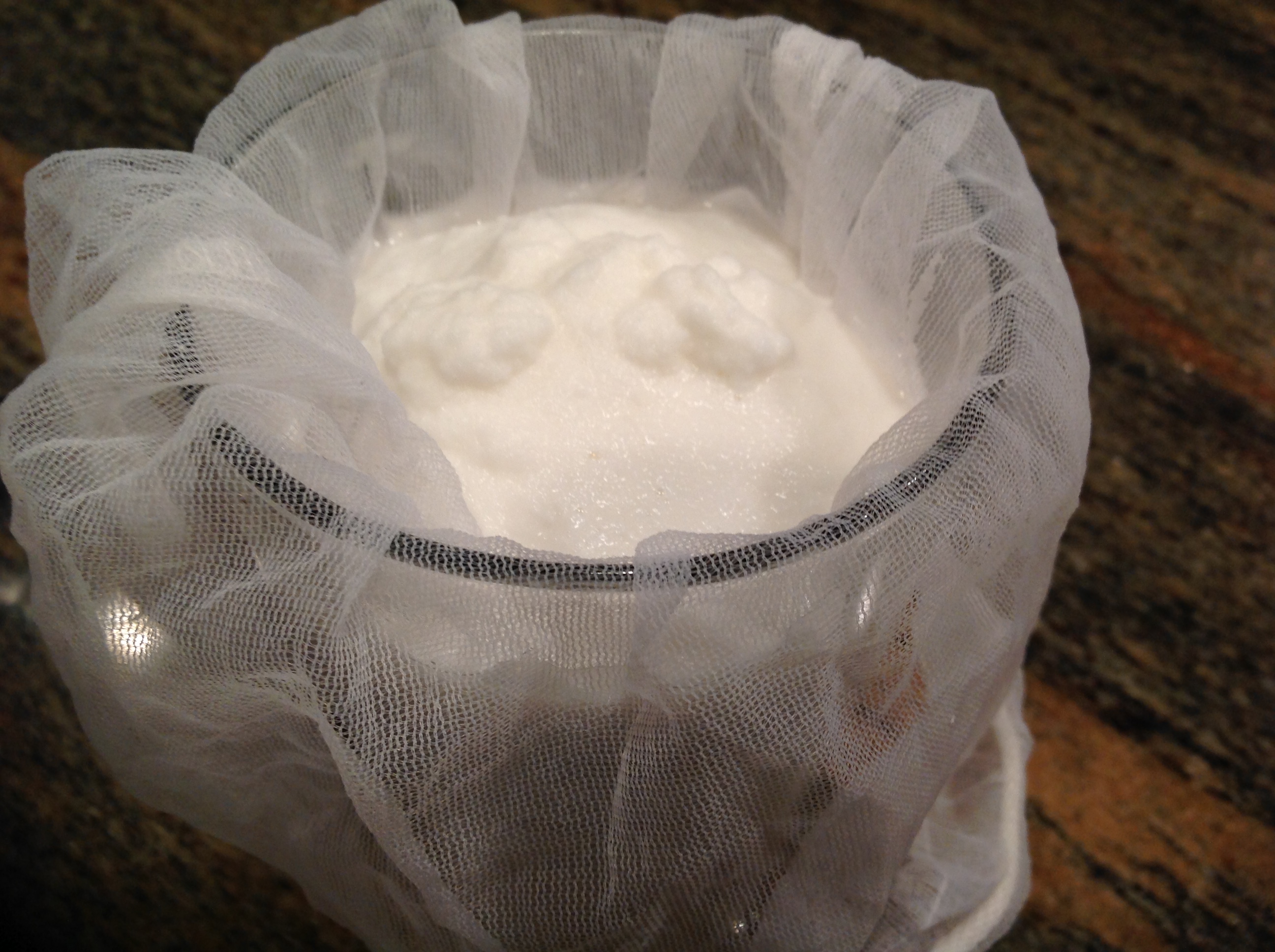
3. Place a nut milk bag over a glass or large pyrex measuring cup and pour the coconut milk into the container.
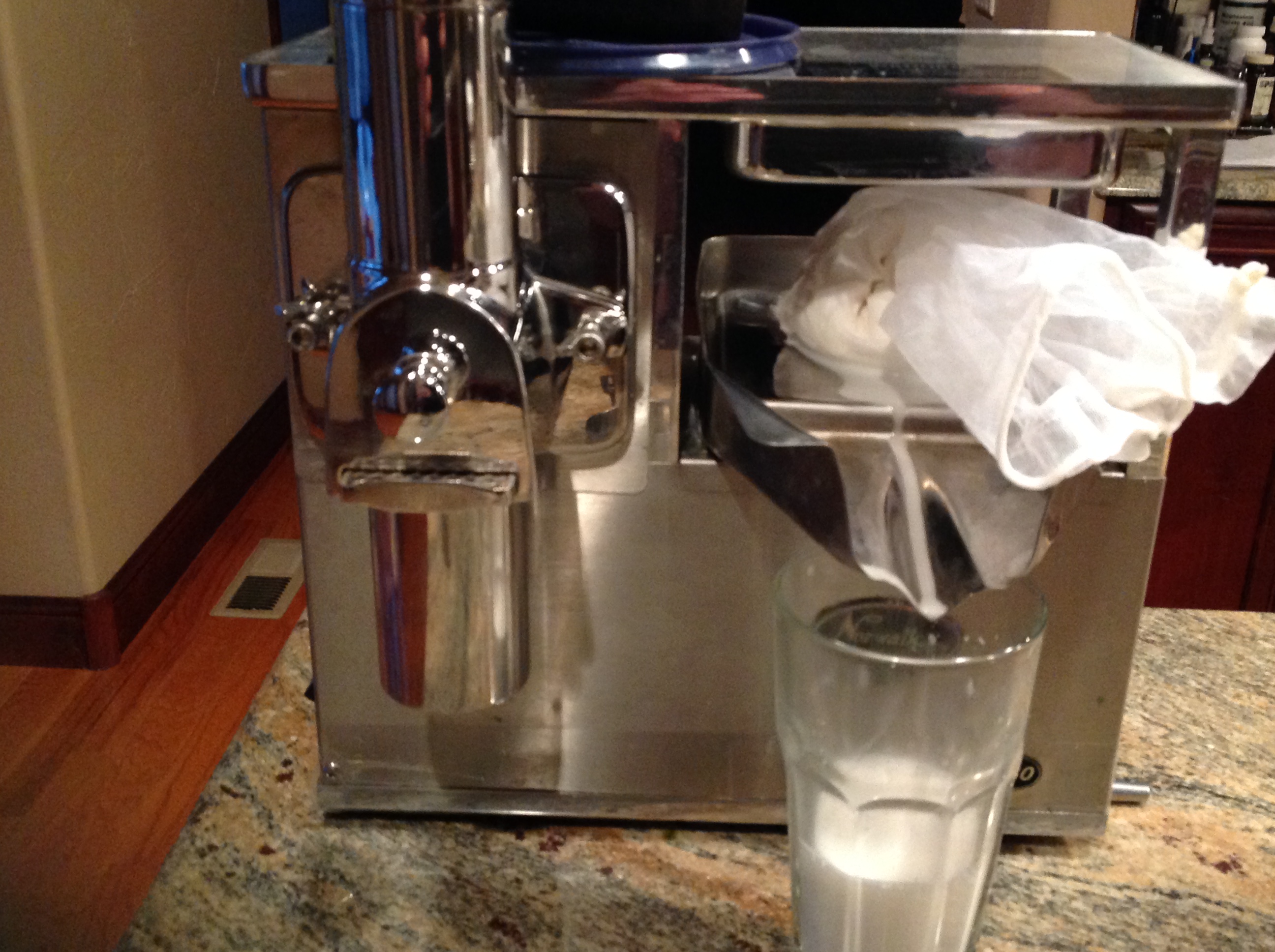
4. If you have a juice press, place the nut milk bag on the press and express milk. If you don’t have a juice press you can squeeze out the milk by hand. Just be sure to wait till the milk cools, so you don’t burn your hands.
That’s it! Just pour your coconut milk into a jar and store in the refrigerator.
Recipe Options:
I leave this dairy free coconut milk plain, because I like to use it in herbal coffee, on granola and in recipes. After straining the milk, you can certainly add your favorite sweetener such as honey, lakanto , coconut or sugar. In addition you can add cocoa, herbal coffee or berries to give it your own special flavor.
Recipe:
1 Cup organic dried coconut
1-1/2 Cups hot water
1. Place both ingredients in vitamix or high speed blender.
2. Blend on high speed for one minute.
3. Place nut milk bag in large glass or large pyrex measuring cup.
4. Pour milk into bag . Allow to cool and squeeze bag to express the milk. Alternately use a juice press to express the milk.
Options: After straining add cocoa, sweeteners or berries and blend to create your favorite flavors.
Store milk in airtight container in the refrigerator.
References:
a. (2011, August 15). What is Lactose Intolerance? Retrieved November 09, 2017, from http://www.pcrm.org/health/diets/vegdiets/what-is-lactose-intolerance
1. Lanou, A. J. (2009, May). Should dairy be recommended as part of a healthy vegetarian diet? Counterpoint. Retrieved November 06, 2017, from https://www.ncbi.nlm.nih.gov/pubmed/19321571
2. Dairy: 6 Reasons You Should Avoid It at all Costs. (2017, January 03). Retrieved November 06, 2017, from http://drhyman.com/blog/2010/06/24/dairy-6-reasons-you-should-avoid-it-at-all-costs-2/
3. Kucharska, A., Szmurło, A., & Sińska, B. (2016, April). Significance of diet in treated and untreated acne vulgaris. Retrieved November 06, 2017, from https://www.ncbi.nlm.nih.gov/pmc/articles/PMC4884775
4. Rona, R. J., Keil, T., Summers, C., Gislason, D., Zuidmeer, L., Sodergren, E., . . . Madsen, C. (2007, September). The prevalence of food allergy: a meta-analysis. Retrieved November 06, 2017, from https://www.ncbi.nlm.nih.gov/pubmed/17628647
5. Lanou, A. J. (2009, May). Should dairy be recommended as part of a healthy vegetarian diet? Counterpoint. Retrieved November 06, 2017, from https://www.ncbi.nlm.nih.gov/pubmed/19321571
6. Michaëlsson, K., Wolk, A., Langenskiöld, S., Basu, S., Lemming, E. W., Melhus, H., & Byberg, L. (2014, October 28). Milk intake and risk of mortality and fractures in women and men: cohort studies. Retrieved November 06, 2017, from http://www.bmj.com/content/349/bmj.g6015
7. Dehghani, S. M., Ahmadpour, B., Haghighat, M., Kashef, S., Imanieh, M. H., & Soleimani, M. (2012, December). The Role of Cow’s Milk Allergy in Pediatric Chronic Constipation: A Randomized Clinical Trial. Retrieved November 06, 2017, from https://www.ncbi.nlm.nih.gov/pubmed/23429756
8. Caffarelli, C., Baldi, F., Bendandi, B., Calzone, L., Marani, M., Pasquinelli, P., & EWGPAG, O. B. (2010). Cow’s milk protein allergy in children: a practical guide. Retrieved November 06, 2017, from https://www.ncbi.nlm.nih.gov/pmc/articles/PMC2823764
9. Muntoni, S., Cocco, P., Aru, G., & Cucca, A. F. (2000, June 01). Sandro Muntoni. Retrieved November 06, 2017, from http://ajcn.nutrition.org/content/71/6/1525.full
10. Juntti, H., Tikkanen, S., Kokkonen, J., Alho, O. P., & Niinimäki, A. (n.d.). Cow’s milk allergy is associated with recurrent otitis media during childhood. Retrieved November 06, 2017, from https://www.ncbi.nlm.nih.gov/pubmed/10728925
11. Moissidis, I., Chaidaroon, D., Vichyanond, P., & Bahna, S. L. (2005, September). Milk-induced pulmonary disease in infants (Heiner syndrome). Retrieved November 06, 2017, from https://www.ncbi.nlm.nih.gov/pubmed/16176405
12. Ohlsson, L. (2010). Dairy products and plasma cholesterol levels. Retrieved November 06, 2017, from https://www.ncbi.nlm.nih.gov/pmc/articles/PMC2926059/
13. Bordoni, A., Danesi, F., Dardevet, D., Dupont, D., Fernandez, A. S., Gille, D., . . . Vergères, G. (2017, August 13). Dairy products and inflammation: A review of the clinical evidence. Retrieved November 06, 2017, from https://www.ncbi.nlm.nih.gov/pubmed/26287637
14. Conlon, M. A., & Bird, A. R. (2015, January). The Impact of Diet and Lifestyle on Gut Microbiota and Human Health. Retrieved November 06, 2017, from https://www.ncbi.nlm.nih.gov/pmc/articles/PMC4303825
15. Malosse, D., Perron, H., Sasco, A., & Seigneurin, J. M. (n.d.). Correlation between milk and dairy product consumption and multiple sclerosis prevalence: a worldwide study. Retrieved November 06, 2017, from https://www.ncbi.nlm.nih.gov/pubmed/1291895
16. Lill, C., Loader, B., Seemann, R., Zumtobel, M., Brunner, M., Heiduschka, G., & Thurnher, D. (n.d.). Milk allergy is frequent in patients with chronic sinusitis and nasal polyposis. Retrieved November 06, 2017, from https://www.ncbi.nlm.nih.gov/pubmed/22185729
17. Lanou, A. J. (2009, May). Should dairy be recommended as part of a healthy vegetarian diet? Counterpoint. Retrieved November 07, 2017, from https://www.ncbi.nlm.nih.gov/pubmed/19321571

